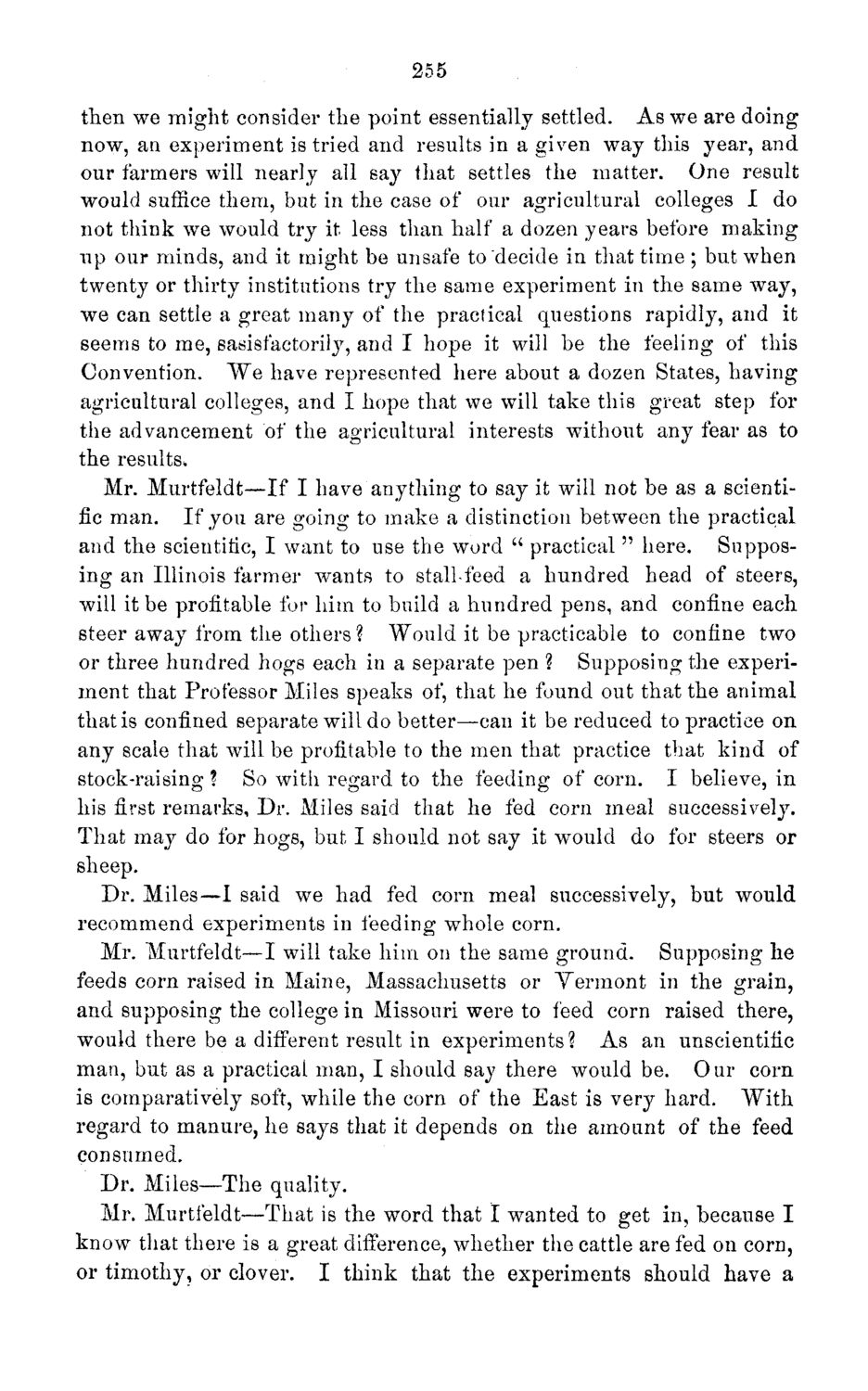| |
| |
Caption: Board of Trustees Minutes - 1871
This is a reduced-resolution page image for fast online browsing.

EXTRACTED TEXT FROM PAGE:
255 then we might consider the point essentially settled. As we are doing now, an experiment is tried and results in a given way this year, and our farmers will nearly all say that settles the matter. One result would suffice them, but in the case of our agricultural colleges I do not think we would try it less than half a dozen years before making up our minds, and it might be unsafe to "decide in that time ; but when twenty or thirty institutions try the same experiment in the same way, we can settle a great many of the practical questions rapidly, and it seems to me, sasisfactorily, and I hope it will be the feeling of this Convention. We have represented here about a dozen States, having agricultural colleges, and I hope that we will take this great step for the advancement of the agricultural interests without any fear as to the results, Mr. Murtfeldt—If I have anything to say it will not be as a scientific man. If you are going to make a distinction between the practical and the scientific, I want to use the word " practical " here. Supposing an Illinois farmer wants to stall feed a hundred head of steers, will it be profitable for him to build a hundred pens, and confine each steer away from the others ? Would it be practicable to confine two or three hundred hogs each in a separate pen ? Supposing the experiment that Professor Miles speaks of, that he found out that the animal that is confined separate will do better—can it be reduced to practice on any scale that will be profitable to the men that practice that kind of stock-raising ? So with regard to the feeding of corn. I believe, in his first remarks, Dr. Miles said that he fed corn meal successively. That may do for hogs, but I should not say it would do for steers or sheep. Dr. Miles—I said we had fed corn meal successively, but would recommend experiments in feeding whole corn. Mr. Murtfeldt—I will take him on the same ground. Supposing he feeds corn raised in Maine, Massachusetts or Yermont in the grain, and supposing the college in Missouri were to feed corn raised there, would there be a different result in experiments? As an unscientific man, but as a practical man, I should say there would be. Our corn is comparatively soft, while the corn of the East is very hard. With regard to manure, he says that it depends on the amount of the feed consumed. Dr. Miles—The quality. Mr. Murtfeldt—That is the word that I wanted to get in, because I know that there is a great difference, whether the cattle are fed on corn, or timothy, or clover. I think that the experiments should have a
| |